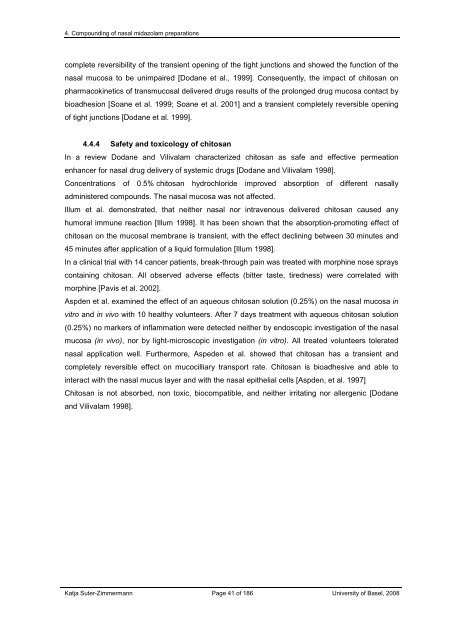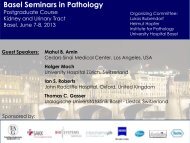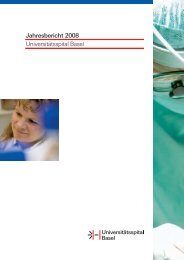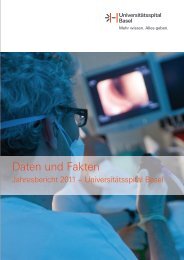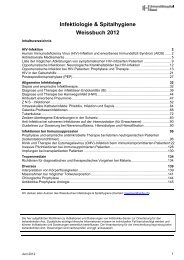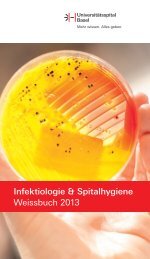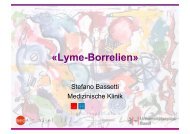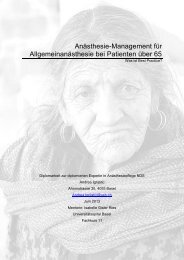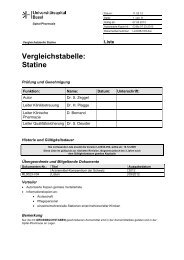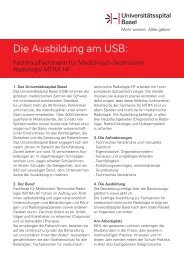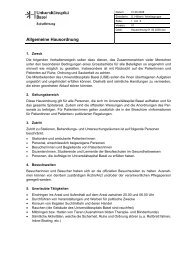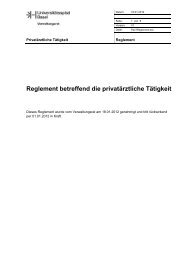Transmucosal Nasal Drug Delivery: Systemic Bioavailability of ...
Transmucosal Nasal Drug Delivery: Systemic Bioavailability of ...
Transmucosal Nasal Drug Delivery: Systemic Bioavailability of ...
You also want an ePaper? Increase the reach of your titles
YUMPU automatically turns print PDFs into web optimized ePapers that Google loves.
4. Compounding <strong>of</strong> nasal midazolam preparations<br />
complete reversibility <strong>of</strong> the transient opening <strong>of</strong> the tight junctions and showed the function <strong>of</strong> the<br />
nasal mucosa to be unimpaired [Dodane et al., 1999]. Consequently, the impact <strong>of</strong> chitosan on<br />
pharmacokinetics <strong>of</strong> transmucosal delivered drugs results <strong>of</strong> the prolonged drug mucosa contact by<br />
bioadhesion [Soane et al. 1999; Soane et al. 2001] and a transient completely reversible opening<br />
<strong>of</strong> tight junctions [Dodane et al. 1999].<br />
4.4.4 Safety and toxicology <strong>of</strong> chitosan<br />
In a review Dodane and Vilivalam characterized chitosan as safe and effective permeation<br />
enhancer for nasal drug delivery <strong>of</strong> systemic drugs [Dodane and Vilivalam 1998].<br />
Concentrations <strong>of</strong> 0.5% chitosan hydrochloride improved absorption <strong>of</strong> different nasally<br />
administered compounds. The nasal mucosa was not affected.<br />
Illum et al. demonstrated, that neither nasal nor intravenous delivered chitosan caused any<br />
humoral immune reaction [Illum 1998]. It has been shown that the absorption-promoting effect <strong>of</strong><br />
chitosan on the mucosal membrane is transient, with the effect declining between 30 minutes and<br />
45 minutes after application <strong>of</strong> a liquid formulation [Illum 1998].<br />
In a clinical trial with 14 cancer patients, break-through pain was treated with morphine nose sprays<br />
containing chitosan. All observed adverse effects (bitter taste, tiredness) were correlated with<br />
morphine [Pavis et al. 2002].<br />
Aspden et al. examined the effect <strong>of</strong> an aqueous chitosan solution (0.25%) on the nasal mucosa in<br />
vitro and in vivo with 10 healthy volunteers. After 7 days treatment with aqueous chitosan solution<br />
(0.25%) no markers <strong>of</strong> inflammation were detected neither by endoscopic investigation <strong>of</strong> the nasal<br />
mucosa (in vivo), nor by light-microscopic investigation (in vitro). All treated volunteers tolerated<br />
nasal application well. Furthermore, Aspeden et al. showed that chitosan has a transient and<br />
completely reversible effect on mucocilliary transport rate. Chitosan is bioadhesive and able to<br />
interact with the nasal mucus layer and with the nasal epithelial cells [Aspden, et al. 1997]<br />
Chitosan is not absorbed, non toxic, biocompatible, and neither irritating nor allergenic [Dodane<br />
and Vilivalam 1998].<br />
Katja Suter-Zimmermann Page 41 <strong>of</strong> 186 University <strong>of</strong> Basel, 2008


